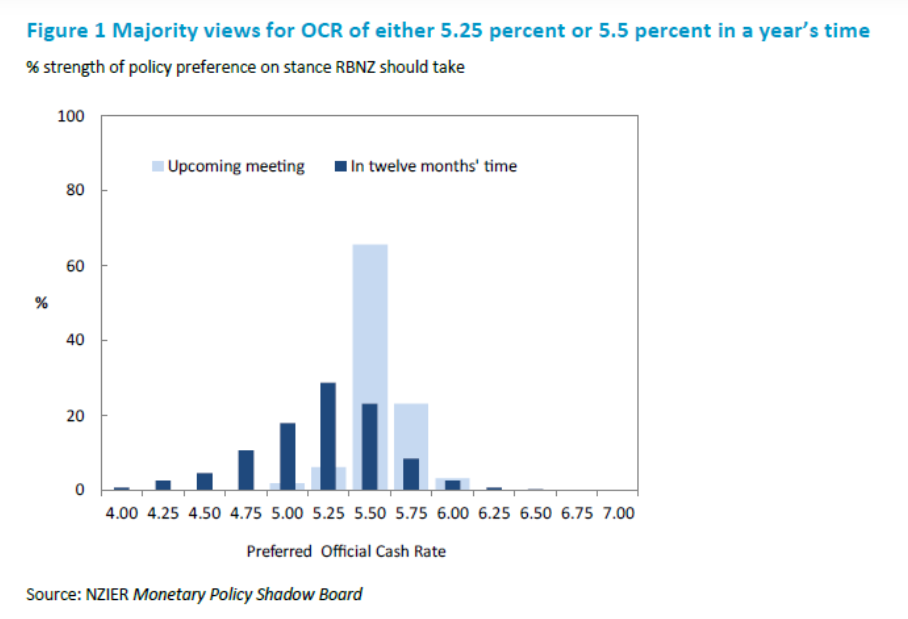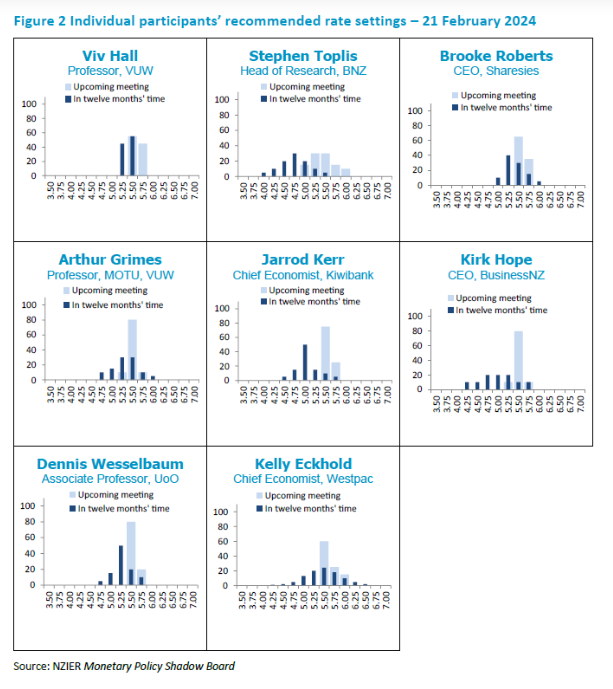There are signs that previous increases are beginning to temper the economy

The New Zealand Institute of Economic Research (NZIER) Monetary Policy Shadow Board has advised the Reserve Bank (RBNZ) to maintain the OCR at 5.5% in its upcoming Monetary Policy Statement on February 28.
This recommendation comes amid signs that previous OCR increases are beginning to temper the New Zealand economy as intended, with a noticeable easing in the labor market, a deceleration in annual CPI inflation, and slowing GDP growth.
Maintaining the OCR amid inflation concerns
While acknowledging the economy’s current state, several Shadow Board members emphasised the prematurity of any OCR reduction due to persistent domestic inflation pressures.
The consensus for the OCR’s trajectory in a year’s time varied, centering around 4.75% to 5.75%, with a preference for maintaining or slightly reducing the rate to ensure inflation returns to the RBNZ’s 1% to 3% target range. A cautious approach was advocated by two members to observe inflation risks over time.
“The members’ views are broadly in line with our view that the OCR should remain at or near the current restrictive level over the coming year,” said Ting Huang (pictured above), NZIER senior economist.


Diverse views on future monetary policy
Participants provided varied insights on the OCR’s direction:
- Stephen Toplis, head of research at BNZ, believes lower interest rates would be appropriate given the combination of a slowing economy and easing inflation but acknowledged that a rate cut is unlikely soon.
- Viv Hall, emeritus professor in the School of Economics & Finance at Victoria University of Wellington, pointed out that despite some easing, inflationary pressures, particularly non-tradables inflation, remain too high to consider reducing the OCR.
- Jarrod Kerr, chief economist at Kiwibank, highlighted global inflation containment efforts and predicted inflation would align with the RBNZ’s target by early next year, advocating against further rate hikes.
- Arthur Grimes, senior fellow at Motu Research, and professor of wellbeing and public policy at Victoria University of Wellington’s School of Government; Kelly Eckhold, chief economist - Westpac New Zealand: and Dennis Wesselbaum, associate professor in economics at the University of Otago and vice president of the New Zealand Association of Economists, expressed caution against immediate rate changes, suggesting a wait-and-see approach due to uncertainties and upcoming fiscal policy changes.
- Brooke Roberts, Sharesies CEO, described the decision as contentious, with a slight lean towards maintaining the OCR, considering cooling inflation and significant mortgage refinancing due this year.
About NZIER’s Monetary Policy Shadow Board
The NZIER Monetary Policy Shadow Board, independent of RBNZ, aims to stimulate informed debate on interest rate decisions, offering a glimpse into how a board structure might handle monetary policy deliberations. It provides a collective perspective ahead of each RBNZ monetary policy decision, reflecting a range of views from its participants.
The next Shadow Board release is scheduled for April 8, preceding the RBNZ’s Monetary Policy Review. Past releases and more information on the Shadow Board's objectives and methodology can be found on the NZIER’s website.
Access the NZIER media release here.
Get the hottest and freshest mortgage news delivered right into your inbox. Subscribe now to our FREE daily newsletter.



